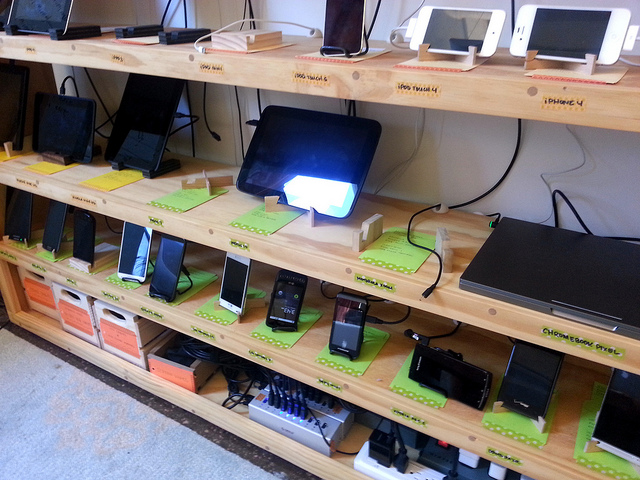- Mobile devices to get certified by test labs
By IT Edge News.Com – NewsInsightTeam
The National Information Technology Development Agency (NITDA) plans to set up a test lab for all handsets and other mobile devices in the country, a move that would require that all handset manufacturers get their devices certified as fit before unloading them into the market.
“Virtually all handsets or mobile devices are 90% software driven making them to come under the purview of the NITDA; and also to provide an acceptable approval model in conformity with global standards,” said a senior official of NITDA.
Handset manufacturers generally rely for test approval on the Global Certification Forum (GCF). Founded in 1999, the GCF is an “active partnership between mobile network operators, mobile device manufacturers and the test industry.” According to Wikipedia, Certification is carried out by Recognized Test Organisations (RTOs) and from January 2013, it became a requirement that all device testing associated with GCF Certification must be carried out by an RTO.
The GCF has been responsible for creating an independent certification programme to help ensure global interoperability between mobile devices and networks. The GCF testing covers three disciplines: Conformance Testing; Field Trials; and Interoperability.
Notwithstanding, the NITDA may be taking a cue from other countries like India and Malaysia to ensure certifications for all mobile devices whether locally manufactured or imported before they are launched into the market.
In Malaysia, all mobile and electronic devices must carry certified approval labels from MCMC – Malaysia Communications and Multimedia Commission and SIRIM – Malaysia’s leading certification, inspection and testing body.
In India, all mobile devices to be sold to consumers must be BIS-certified, according to Indian based Trak.in, a tech analysis publication. BIS is the Bureau of India Standards and it works through a number of accredited test laboratories to certify all phones including power adaptors, UPS, and LED lightening among others.
NITDA’s plan is to ensure that low grade products which can explode or heat up are filtered out before they enter the market. The agency wants certified processes that guaranty that only tested and high quality products safe for use enter the hands of consumers.
NITDA hopes to set up a similar model by working in partnership with the Nigerian Communications Commission (NCC), Standards Organisation of Nigeria (SON), and National Broadcasting Commission (NBC). Since its mandate empowers it to regulate IT deployment and consumables, the agency says it would aggressively explore a multi-stakeholders approach to taming the scourge of counterfeit IT products and unregulated entry into the market.
The SON has in the past shut down several phony phone peddlers. But the problem has persisted and even for recognized, big brands; absence of certification has meant free, unregulated entry in a way that has jeopardized consumers’ interest.
Telecom regulator, the NCC, works closely with the GCF but only ensures that phones sold in the country were type-approved. But IT devices go beyond just phones and are expansive in terms of availability and required technical procedures. Thus, the NITDA is considering specific test labs either in-sourced or out-sourced to provide certifications for items that will include among others: laptops, desktops, printers, video games, tablets, scanners, wireless keyboards and monitors.
Edited: Segun Oruame






























